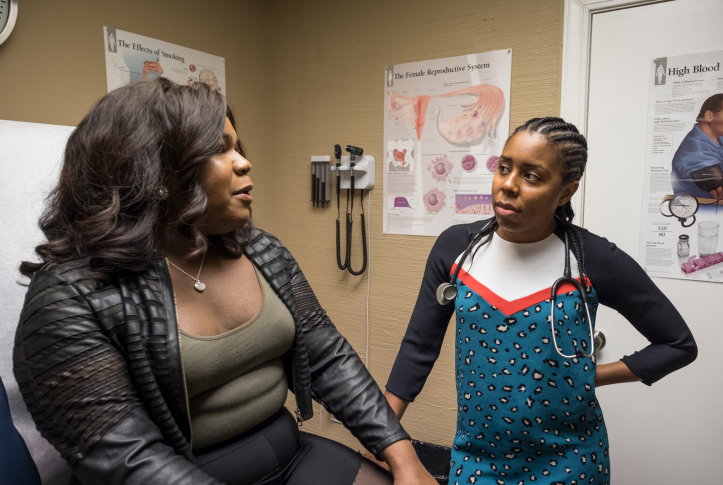On June 21, a three-judge panel in the U.S. Court of Appeals for the Fifth Circuit issued its long-awaited decision in Braidwood Management v. Becerra. The case has consequences for the Affordable Care Act’s guarantee of coverage for a wide range of free preventive care. In the near term, that guarantee remains undisturbed, but there may be years of litigation ahead.
The case. A few individuals and businesses challenged the constitutionality of the Affordable Care Act’s preventive benefit coverage guarantee for nearly all privately insured Americans. The individual and employer plaintiffs argued that covering benefits like preexposure prophylaxis to reduce the likelihood of getting HIV infection (PrEP) and contraceptives violates their religious beliefs. Other plaintiffs argued that they did not want to pay for coverage they did not use; the trial court dismissed these “economic” plaintiffs, leaving only the religious objectors.
Beyond claiming a violation of their beliefs under the Religious Freedom Restoration Act (RFRA), plaintiffs challenged the benefits on constitutional grounds, arguing that the process used for appointing the expert panels that recommended the ACA’s benefit package was flawed and therefore, the recommendations cannot be enforced.
The trial court. In 2022, the trial court sided with the plaintiffs on one of the expert panels, the United States Preventive Services Task Force (USPSTF), but rejected their arguments regarding the other two — the Health Resources and Services Administration (HRSA) and the Advisory Committee on Immunization Practices (ACIP). This effectively saved the ACIP vaccine recommendations and the HRSA recommendations for women’s and children’s health, including the coverage of contraceptives. The court found that the USPSTF members were unconstitutionally appointed and also found merit in the plaintiffs’ RFRA claims. Based on this conclusion, the court vacated all recommendations adopted after the ACA was enacted in 2010 (include its recommendations in maternal health, HIV prophylaxis, and cancer prevention, among dozens of others) and concluded that all private health insurance plans — not just the plaintiffs’ plans — must drop free coverage recommended by the USPSTF. The Biden administration appealed.
The Fifth Circuit. In a ruling possibly at odds with a recent Supreme Court decision, the court concluded that the appointment of the USPSTF members failed a constitutional test and furthermore, the U.S. Department of Health and Human Services (HHS) Secretary could not remedy this failing by adopting the findings as his own. The court reached this conclusion based on its reading of the ACA, which, according to the court, assigns sole decision-making power to the USPSTF and gives the HHS Secretary no role in which standards get recommended and adopted. Therefore, the court concluded, the Secretary lacks the power to cure the appointment defect by adopting the recommendations as his own (a process known as ratification) even though USPSTF members serve at his pleasure and are under his control. The Fifth Circuit agreed with the trial court that unlike the USPSTF, members of ACIP and HRSA are indeed subordinates to the HHS Secretary but sent the case back to the trial court to determine whether the Secretary in fact properly adopted their recommendations as his own, which would make their recommendations constitutional.
The Fifth Circuit set aside the trial court’s decision to apply its holding to all private insurance plans, not only those that cover the plaintiffs. This leaves the USPSTF recommendations in place for privately insured Americans. At the same time, the court underscored that it did so on narrow technical grounds, and not because overturning coverage for more than 150 million people would cause extraordinary harm. Courts frequently refuse to allow nationwide injunctions, as opposed to limiting relief to certain named plaintiffs, when individual plaintiffs can be protected without causing undue harm to many others. This court refused to consider doing so, even when faced with the evidence of a possible massive reduction in coverage that would be caused by a universal injunction.
What’s next? Hundreds of preventive benefits remain at stake for more than150 million privately insured people. The eventual outcome thus remains a matter of great importance.
For now, Braidwood remains embroiled in ongoing litigation with no immediate impact. Presumably the Biden administration will appeal to the full Fifth Circuit and, potentially, to the Supreme Court. If the case ever returns to the trial court, in addition to reexamining the question of whether the ACIP and HRSA recommendations will meet the same fate as the USPSTF recommendations, the court could allow the plaintiffs to fix the technical problem identified by the appeals court and again strike down preventive coverage nationwide, not just for plans purchased by the plaintiffs. Should that happen, the administration will immediately seek a stay from the higher courts.
Finally, it is possible that other employers will seek to intervene in the Fifth Circuit case so they can also eliminate USPSTF benefits without fear of sanction. Few may do — following the Supreme Court’s 2020 decision upholding employers’ right to exclude contraceptive coverage on religious or moral grounds, very few appear to have done so. But because an elimination of the USPSTF recommendations would mean an end to free coverage of PrEP to reduce the likelihood of HIV infection, there is cause for concern.





